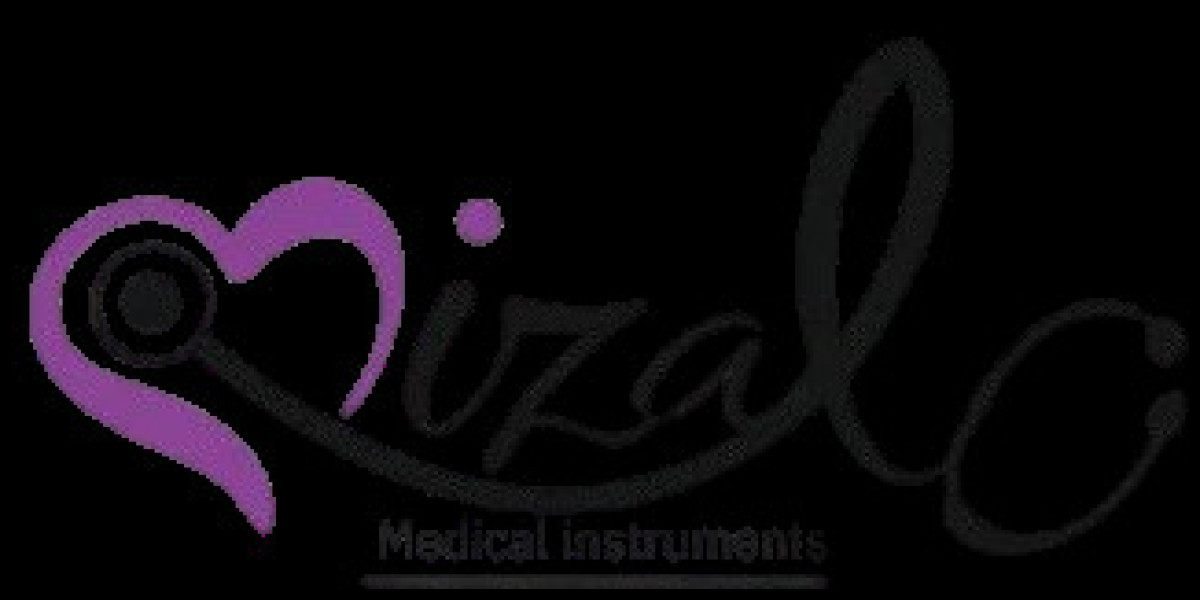Medical instruments companies play a pivotal role in the advancement of healthcare. By designing and manufacturing cutting-edge tools and devices, these companies enable medical professionals to diagnose, treat, and manage diseases with precision and efficiency. From basic diagnostic tools to complex surgical equipment, the products of medical instrument companies are indispensable in modern medicine.
This guide explores the significance, types, innovations, and key players in the field of medical instruments, shedding light on their critical contribution to global healthcare.
The Importance of Medical Instruments in Healthcare
Medical instruments serve as the backbone of healthcare systems worldwide. They enhance the ability of doctors, nurses, and other medical practitioners to provide accurate diagnoses, effective treatments, and quality care. The reliability and innovation of medical instruments directly impact patient outcomes, making the role of manufacturing companies essential in the medical ecosystem.
Types of Medical Instruments
Medical instruments can be classified into various categories based on their application in diagnostics, treatment, surgery, monitoring, and rehabilitation.
1. Diagnostic Instruments
Diagnostic instruments are used to identify diseases and health conditions accurately.
- Stethoscopes: Essential for listening to heart and lung sounds.
- Thermometers: Measure body temperature for fever detection.
- Blood Pressure Monitors: Monitor hypertension or hypotension.
- Diagnostic Imaging Devices: Includes X-rays, MRI machines, CT scanners, and ultrasound machines.
- Endoscopes: Used for minimally invasive internal examinations.
2. Surgical Instruments
Surgical tools are vital for performing operations with precision and safety.
- Scalpels: Used for incisions in soft tissue.
- Forceps: For gripping or holding tissues during surgery.
- Retractors: Hold back tissues to provide access to the surgical site.
- Sutures and Needle Holders: For wound closure.
- Electrosurgical Devices: Utilize electrical currents to cut, coagulate, or cauterize tissues.
3. Monitoring Instruments
Monitoring devices help track patients' vital signs and other health parameters.
- Electrocardiogram (ECG) Machines: Monitor heart activity.
- Pulse Oximeters: Measure oxygen saturation in the blood.
- Glucose Monitors: For diabetic patients to track blood sugar levels.
- Patient Monitors: Continuously track vital signs such as heart rate, respiration, and blood pressure.
4. Therapeutic Instruments
These devices are used in treatments to manage or cure diseases.
- Infusion Pumps: Deliver medications and nutrients directly into the bloodstream.
- Dialysis Machines: Remove waste products and excess fluid from the blood in patients with kidney failure.
- Ventilators: Provide respiratory support to patients with breathing difficulties.
- Physiotherapy Equipment: Includes devices like ultrasound therapy machines and TENS units for pain management and rehabilitation.
5. Laboratory Instruments
Laboratory tools are critical for analyzing biological samples and conducting research.
- Centrifuges: Separate components of blood or other fluids.
- Microscopes: Allow visualization of microscopic organisms or cells.
- Autoclaves: Sterilize laboratory equipment.
- Spectrophotometers: Measure light absorption in chemical analysis.
Innovation in Medical Instruments
The medical instruments industry has witnessed remarkable innovations in recent years, driven by advancements in technology and a growing demand for precision and efficiency.
- Wearable Devices: Smartwatches and fitness trackers monitor heart rate, sleep, and activity levels.
- Robotic Surgery Systems: Allow surgeons to perform minimally invasive procedures with enhanced precision.
- Artificial Intelligence (AI): AI-powered diagnostic tools aid in analyzing medical images and predicting diseases.
- Telemedicine Equipment: Portable devices and video consultation tools enable remote healthcare delivery.
- 3D Printing: Used to create custom prosthetics, implants, and surgical instruments.
- Point-of-Care Testing Devices: Provide rapid diagnostic results, improving decision-making in emergency and outpatient settings.
Top Medical Instrument Companies
Several leading companies dominate the medical instruments market, offering high-quality products and innovative solutions.
- Medtronic: A global leader in medical technology, specializing in cardiovascular devices, insulin pumps, and spinal implants.
- Johnson & Johnson: Produces surgical instruments, wound care products, and diagnostic equipment.
- GE Healthcare: Renowned for diagnostic imaging systems like X-rays, MRIs, and CT scanners.
- Siemens Healthineers: Offers advanced imaging, laboratory diagnostics, and digital health solutions.
- Philips Healthcare: Known for monitoring systems, imaging devices, and respiratory care products.
- Baxter International: Focuses on infusion systems, dialysis machines, and surgical products.
- 3M Healthcare: Produces surgical masks, wound care products, and infection prevention solutions.
These companies continue to invest in research and development to address emerging healthcare needs.
Quality and Compliance Standards
Medical instrument companies must adhere to strict quality and compliance standards to ensure product safety and efficacy. Regulatory bodies such as the FDA, CE, and ISO set guidelines for manufacturing, testing, and distribution. Key standards include:
- ISO 13485: Ensures quality management systems for medical devices.
- FDA Approval: Certifies safety and performance for devices sold in the US.
- CE Marking: Indicates compliance with European Union standards.
By meeting these regulations, companies instill trust in their products and protect patient safety.
The Role of Sterilization in Medical Instruments
Sterilization is a critical aspect of medical instrument manufacturing and usage. Companies utilize advanced sterilization methods to eliminate pathogens and maintain hygiene. Common methods include:
- Autoclaving: Steam under pressure to sterilize instruments.
- Ethylene Oxide Gas: Used for heat-sensitive devices.
- Gamma Radiation: Sterilizes disposable instruments.
- Chemical Disinfectants: For reusable tools that cannot withstand high temperatures.
Proper sterilization ensures infection control and enhances patient safety.
Challenges Facing Medical Instrument Companies
Despite their essential role, medical instruments company face several challenges, including:
- Regulatory Hurdles: Navigating complex approval processes in different regions.
- High R&D Costs: Developing innovative products requires significant investment.
- Market Competition: Balancing innovation with affordability in a competitive market.
- Supply Chain Issues: Ensuring consistent availability of raw materials and components.
- Sustainability: Addressing environmental concerns by adopting eco-friendly manufacturing practices.
These challenges drive companies to innovate while maintaining high standards of quality and efficiency.
Conclusion
Medical instrument companies are the cornerstone of modern healthcare, providing tools and devices that empower medical professionals to deliver exceptional care. From diagnostic tools to life-saving surgical equipment, their contributions are indispensable in improving global health outcomes.
As technology continues to evolve, these companies are poised to lead the way in advancing healthcare innovation, ensuring a brighter and healthier future for all. Whether you're a healthcare provider or an industry enthusiast, understanding the role of medical instrument companies underscores their vital importance in shaping the future of medicine.



